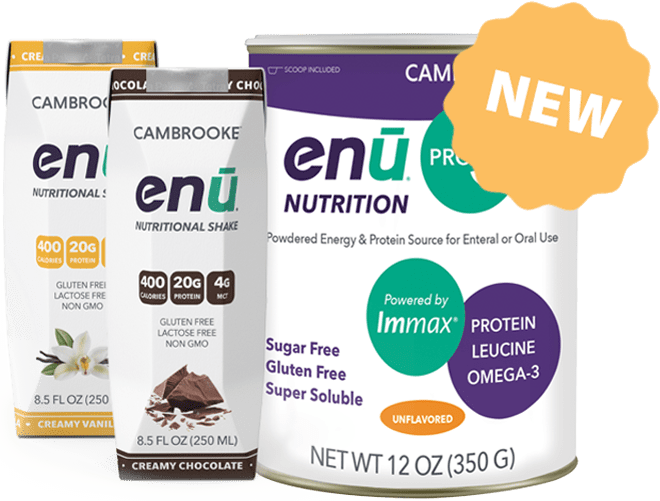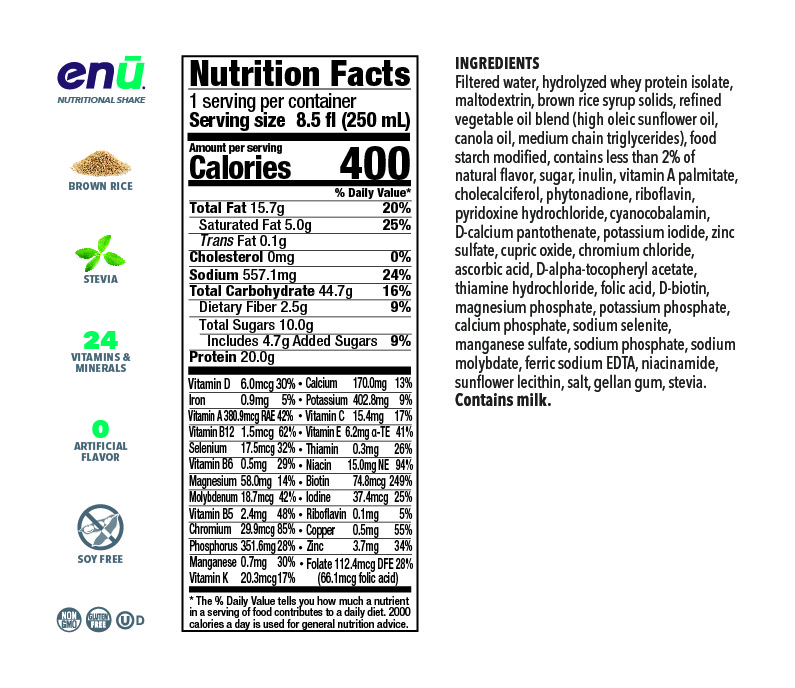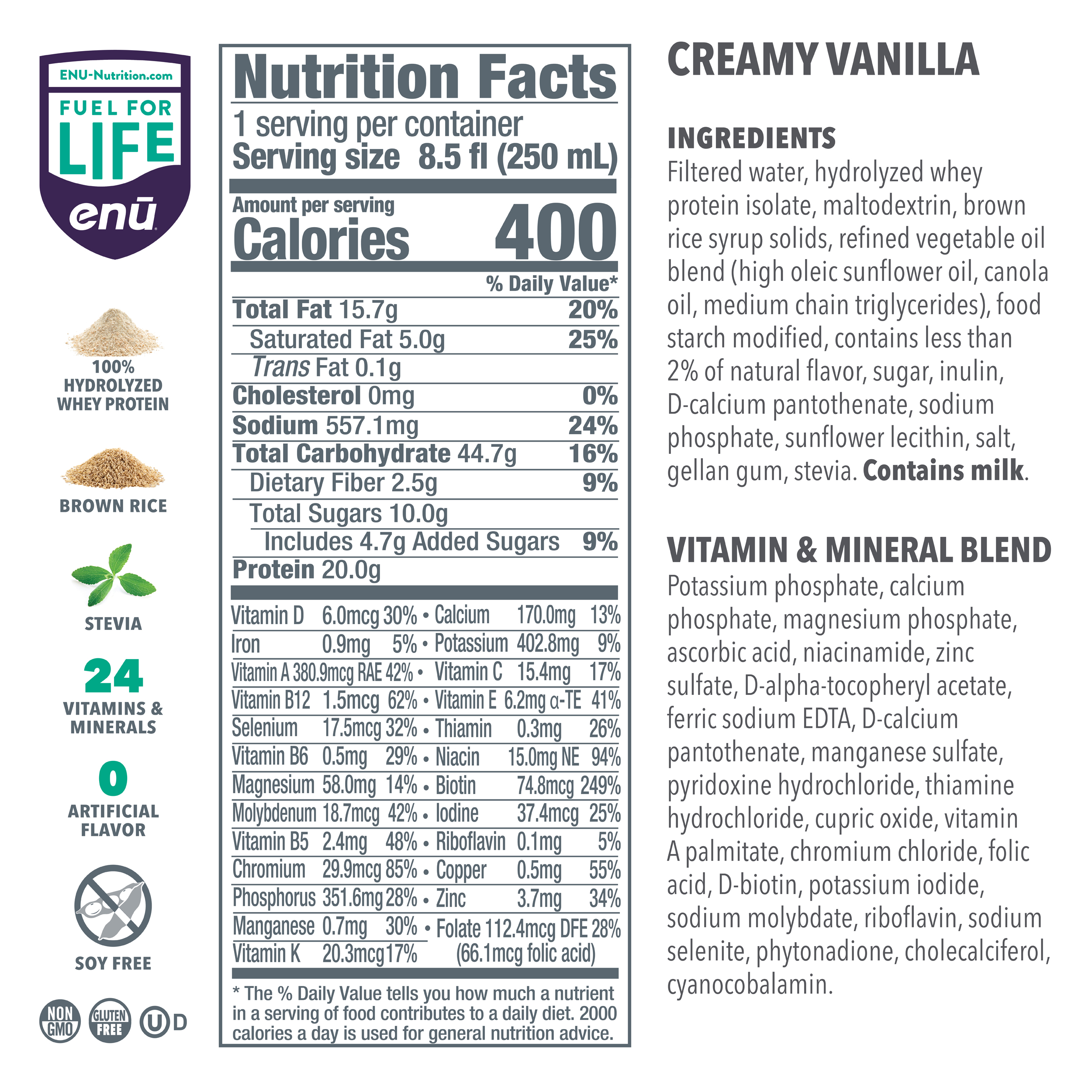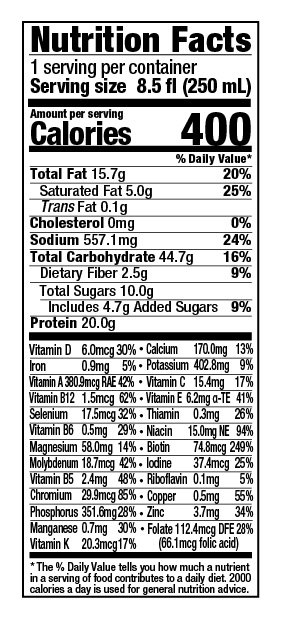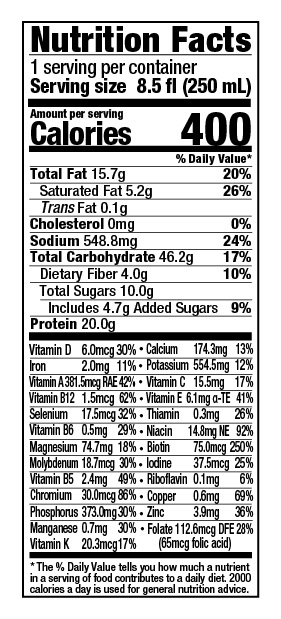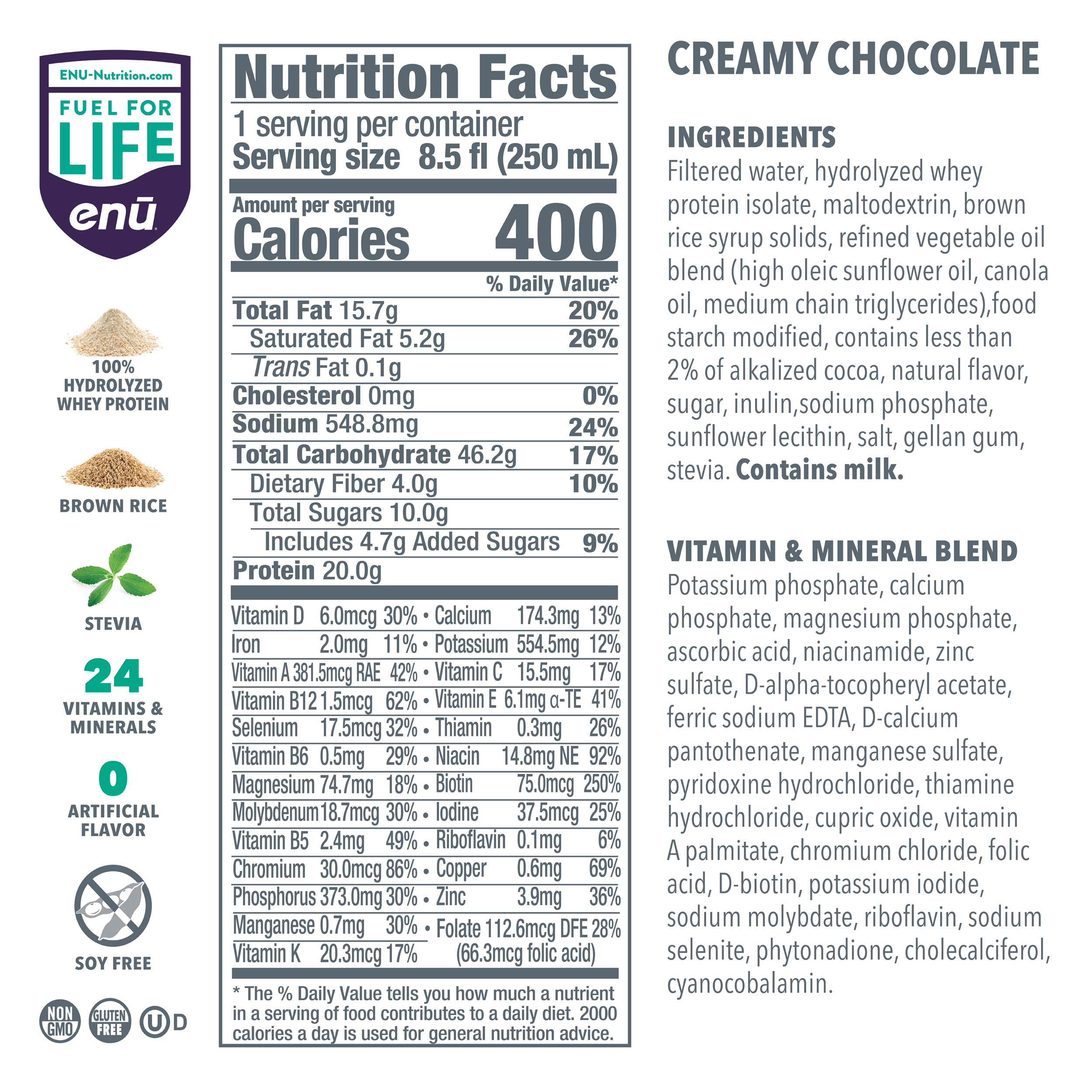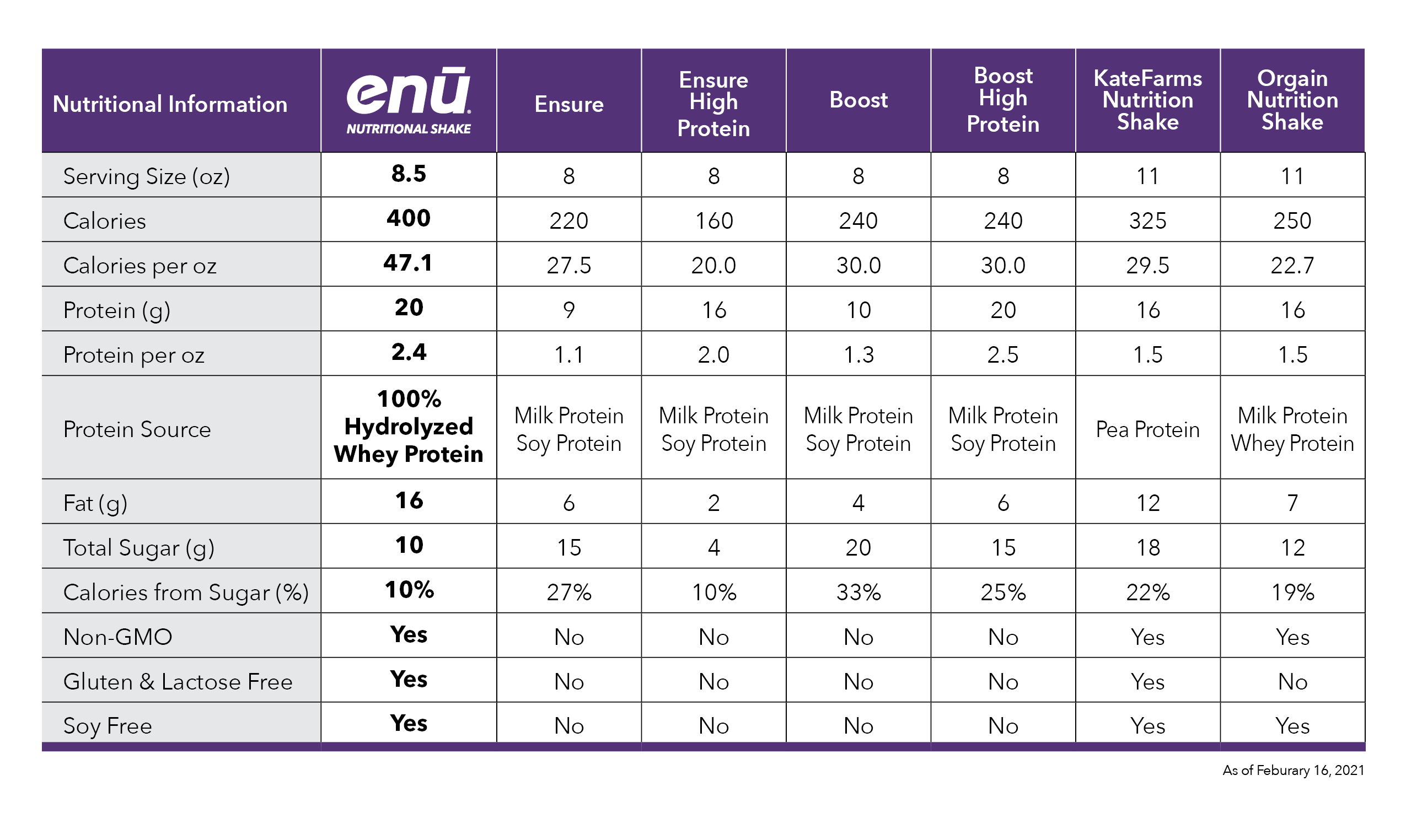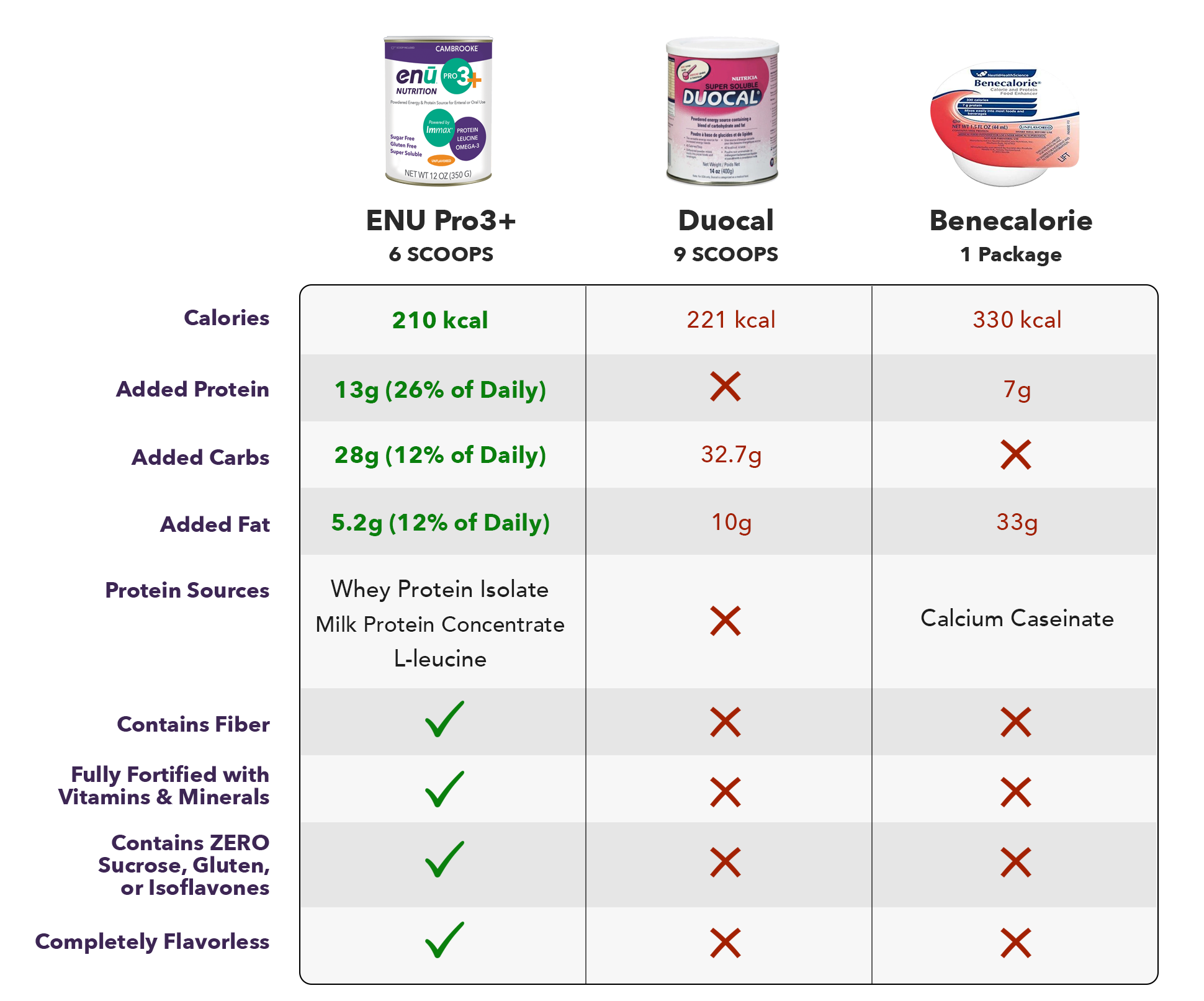
Get a FREE
ENU Intro Pack*
*Just Pay $2.00 Shipping

What Happens When You Can’t Eat?
Eating enough food may not seem like a difficult goal to meet for some people, but for others, maintaining proper calorie and nutrient intakes can be a challenge. There is a variety of health and social issues that could prevent this from happening; conditions as diverse as irritable bowel syndrome, cancer, asthma, HIV, and elevated blood calcium levels can all impact a person’s appetite or cause physical or mental changes that make eating a tough task. In some cases, the treatments for these ailments can make the problem worse, not better. The apparent no-win nature of this conundrum can understandably leave many people frustrated with their situation, but it’s still important to try and find ways to get the nutrients a body needs to maintain itself. At this point, you might be wondering, “What happens when you can’t eat?” To find out, keep reading as the experts at ENU – makers of healthy nutrition shakes – cover this issue in detail.
What Can Happen to Your Body If You Can’t Eat
For someone without an appetite or who’s suffering from an ailment that makes eating uncomfortable, it may seem easier to simply not eat anything. Certainly, it would be less unpleasant than forcing down food your body seems determined to reject, but eating something is nonetheless necessary for survival and – in many cases – recovery from whatever condition is causing the problem in the first place. Regardless of whether you require nutritional support for cystic fibrosis, cancer, or any other condition, your body is bound to start displaying the effects of malnutrition if you can’t eat, including some of the following issues:
Chronic Fatigue
It’s no secret that what we eat serves as fuel for our bodies, so it’s also probably not a surprise that those who can’t eat wind up feeling like they lack energy each day. In medical parlance, this condition is called chronic fatigue, and it’s one of the chief effects of not eating. Your body may feel sluggish, and your mind may seem fogged, both of which are the result of a lack of calories and nutrients.
Mood Swings
Along with our energy levels, food can have a huge impact on our mood. Most people know someone – or are themselves someone – who gets grumpy when they haven’t eaten, a change that’s usually blamed on low blood sugar. What happens when you can’t eat is that your blood sugar ends up perpetually low, which can lead to irritability, low mood, and a lack of motivation in general.
Hair Loss
Though extreme, hair loss is one of the possibilities if you can’t eat enough. From the standpoint of the body, this makes sense; after all, the priority when resources are at a premium is to support those systems necessary for life, and hair is far from essential. Without the protein necessary to produce hair, your body may stop making it, at which point it’ll simply start falling out.
Lower Core Temperature
One of the main things your body does with the energy you get from food is keep your core temperature around 98.6 degrees Fahrenheit. If you can’t eat, the systems that keep you warm may lose some of their effectiveness, leading to a drop in body temperature, which itself can cause a slew of issues.
More Frequent Infections
Normally, when your body is invaded by a foreign organism, it mounts a defense and, as often as not, destroys or rejects the bacteria, virus, fungus, or parasite before it can spread too far. Without adequate resources, however – resources obtained by eating and drinking – your immune system can struggle to kick out future invaders, resulting in more frequent infections.
Reproductive Problems
They may seem necessary for more reason than one, but the body’s reproductive functions tend to get the same treatment as hair production when you can’t eat enough food: they’re placed on the back burner by a body looking to prioritize critical systems, such as respiration and circulation. In practice, this means that a person can take a hit to their libido, and it can make it more difficult to successfully conceive a child.
What to Do If You Can’t Eat
Whatever the reason for your condition, it’s important for you to address your inability to eat before it has a chance to cause malnutrition and other serious complications. To do so, you’ll need to see your doctor; explain your symptoms to them with as much detail as you can provide. The more information you can give them, the better equipped they are to diagnose and treat you.
In the meantime, you may need to find ways to improve your nutrient and calorie intake. There are a few ways to do so, depending on what issue is preventing you from eating. If you’re nauseous, for instance, avoid foods with a strong taste or smell, and if you can’t eat because of mouth sores or other physical impediments, a diet that includes soft foods, healthy meal replacement shakes, and nutritional powders. Just make sure you’re getting as many different nutrients as you can, and try to get enough calories to keep your body fueled.
Try ENU Nutritional Shakes and Powders When You Can’t Eat
When choosing meal replacement or protein shakes for weight gain and other products designed to help you stay nourished, a well-balanced nutritional profile is key. ENU shakes offer 400 calories, 20 grams of protein from whey and soy, complex carbs from foods like brown rice and quinoa, heart-healthy fats provided by coconut and sunflower oils, and a mix of more than 20 vitamins and minerals. Our shakes also come in two mild flavors – chocolate and vanilla – so they’re palatable to those with nausea or taste issues. Learn more by visiting our website today or calling (855) 266-6733


